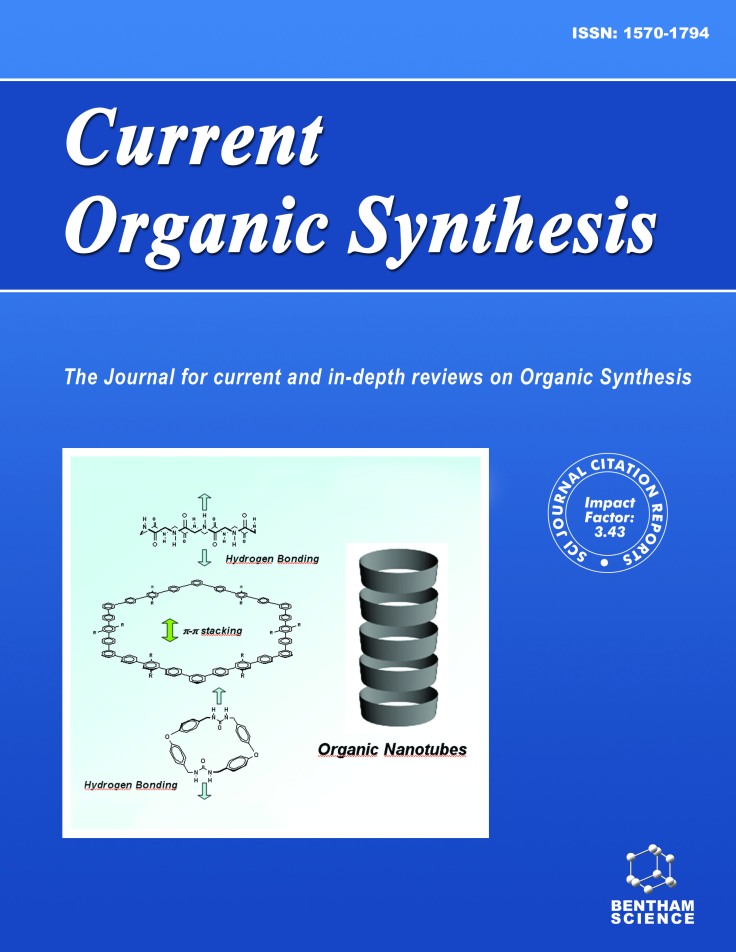Multicomponent 1,3-Dipolar Cycloaddition Reactions in the Construction of Hybrid Spiroheterocycles
Author(s):NatarajanArumugam, RajuSuresh Kumar, Abdulrahman I. Almansour and SubbuPerumal
Pages 1929-1956 (28)
Abstract:
Spiroheterocyclic ring systems are attractive synthetic targets due to their interesting conformational features and their structural implications on their activity in biological systems. Consequently, a vast deal of research by synthetic organic as well as medicinal chemists pertains to the synthesis of these heterocycles employing diverse synthetic methodologies. Among them, one-pot multicomponent 1,3-cycloaddition reactions have emerged as preferred synthetic protocol in view of their convergence, atom economy, ecofriendliness, flexibility and facile automation. This review article focuses on the assembly of mono-, di- and multispiro heterocyclic hybrids via aforesaid synthetic methodologies with a variety of dipolarophiles.
Palladium Catalyzed C–H Activation and its Application to Multi-bond Forming Reactions
Author(s): Krishnan Ramachandiran, Thonthula Sreelatha, Neelakandan V. Lakshmi, Thelagathoti H. Babu, Doraiswamy Muralidharan and Paramasiram T. Perumal
Pages 2001-2024 (24)
Pages 2001-2024 (24)
Abstract:
The focus of the review is on the formation of multiple bonds by palladium catalyzed C-H activation and functionalization. These include alkanylation, alkenylation, arylations, annulations, domino, cascade reaction, coupling and synthesis of spiro compounds. The non-synchronous formation of new carbon-carbon and carbon-heteroatom (N, O) bonds for the construction of various heterocycles is also discussed.
L-Proline Catalysed Domino Reactions for the Synthesis of Heterocycles
Author(s): Sethuraman Indumathi, Jose C. Menendez and Subbu Perumal
Pages 2038-2064 (27)
Pages 2038-2064 (27)
Abstract:
L-Proline is a cheap, water-soluble organocatalyst that is able to induce the synthesis of a large number of heterocyclic systems. This work is reviewed, with emphasis on the literature of the 2005-2011 period. The domino reactions have been classified according to the nature of the first step of their proposed mechanisms, as follows: (i) iminium-initiated domino mechanisms; (ii) enamineinitiated domino mechanisms; (iii) reactions proceeding via the intermediacy of dienamines; (iv) reactions in which proline acts as a Lewis base and (v) L-proline/metal catalysed reactions.
courtesy by https://benthamsciencepublishers.wordpress.com/2015/08/07/substantial-contributions-to-bentham-science-journal-current-organic-synthesis-by-indian-authors/












0 comments:
Post a Comment